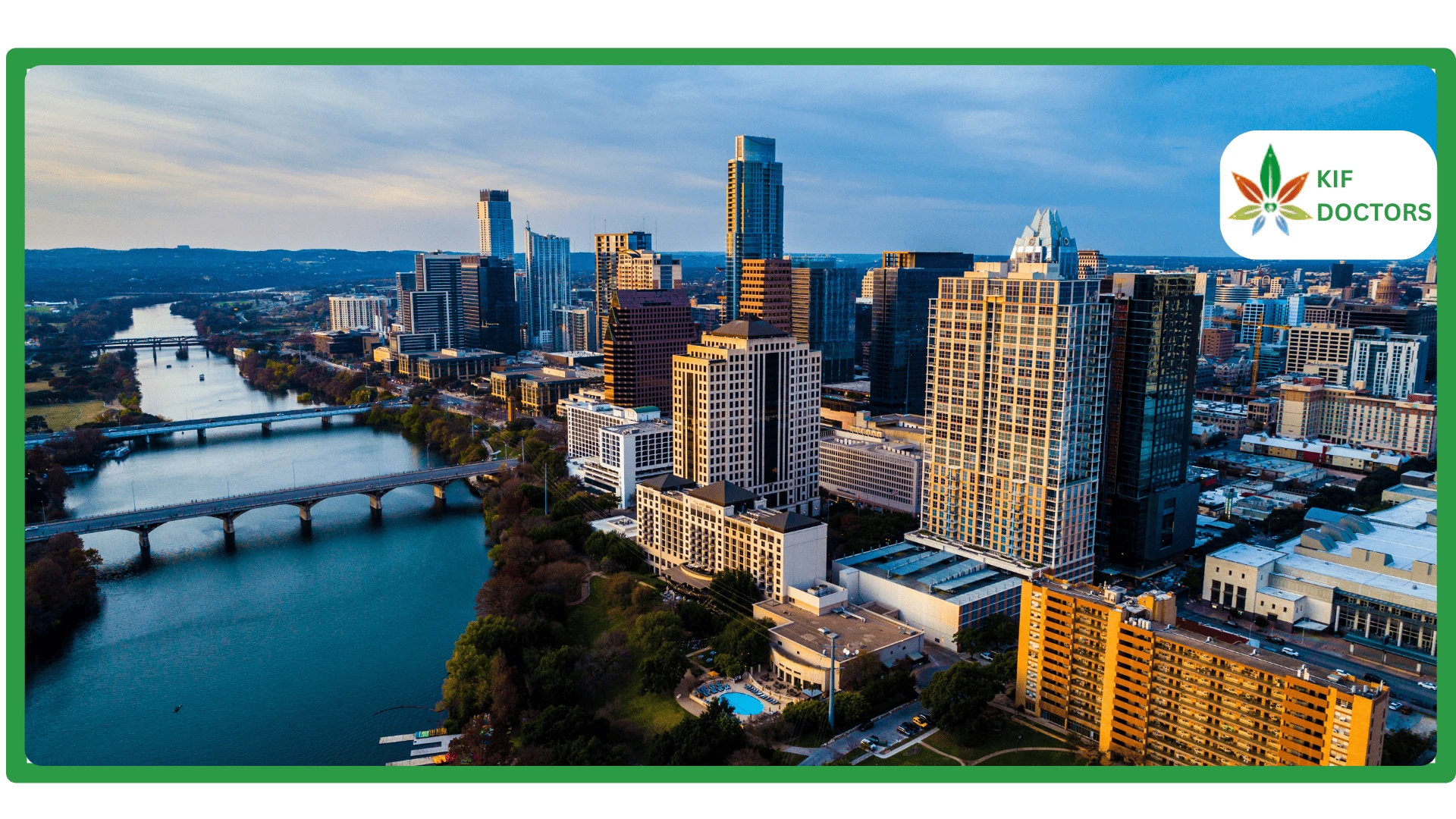If you live in the Lone Star State, you may be wondering, "Is Weed Legal in Texas?" This is a very important question, and the answer is a bit complicated. It is mostly no, with one small exception.
Recreational marijuana is completely illegal in Texas, and the state has some of the toughest cannabis laws in the country. However, there is a very limited medical program for patients with certain health conditions.
This guide is here to explain everything in a simple way. We will talk about the strict laws in Texas, its special medical program, and the serious trouble you can get into for having weed illegally.
The Hard Truth: Marijuana's Legal Status in Texas
Texas is very serious about its marijuana laws. Unlike many other states, Texas has not made weed legal for adults to use for fun. Having even a tiny amount of illegal marijuana can lead to big problems.
It can be confusing because you might see stores selling CBD or hemp products. These are legal because they come from the hemp plant and have very little THC (less than 0.3%). THC is the part of cannabis that makes you feel "high."
Illegal marijuana has more THC than that. So, if you have a product with a higher amount of THC and you don't have a prescription, you are breaking the law in Texas.
Understanding the Texas Compassionate Use Program (TCUP)
The only legal way to use cannabis for health reasons in Texas is through a special program. It is called the Texas Compassionate Use Program, or TCUP for short. This program is very different from medical marijuana programs in other states.
For starters, you don't get a medical marijuana card Texas style. Instead, a special doctor gives you a prescription that gets entered into a private state database called CURT. It's a very controlled system.
What is "Low-THC" Cannabis?
Under the TCUP program, patients don't get the same kind of marijuana you might see in other states. They can only get low-THC cannabis.
This means the product can't have more than 1% THC in it. This is a little stronger than the legal hemp products, but much weaker than what is sold in states where weed is legal for fun.
Also, you are not allowed to smoke this type of cannabis. The medicine comes in other forms, like oils, tinctures (drops), or edibles like lozenges or gummies.
Who Qualifies for the TCUP Program?
Not everyone can join the TCUP program. It is only for patients in Texas who have very specific and serious health problems. The state has an official list of these conditions.
Some of the qualifying conditions include:
-
Epilepsy or other seizure disorders
-
Multiple sclerosis (MS)
-
Spasticity (when your muscles get tight)
-
Terminal cancer
-
Post-traumatic stress disorder (PTSD)
-
Autism
The list has grown over the years to help more people. You can learn more about qualifying conditions to see if you or a loved one might be able to join the program.
How to Legally Access Low-THC Cannabis in Texas
If you have one of the qualifying conditions, there is a safe and legal way to get low-THC cannabis. You just have to follow a few important steps.
Step 1: Find a TCUP-Registered Physician
You can't go to just any doctor. You must see a doctor who is registered with the state's Compassionate Use Program. Only these doctors are allowed to prescribe low-THC cannabis.
Step 2: Get a Prescription
In Texas, a doctor gives you a "prescription," not a "recommendation." This is an important legal difference. The doctor will evaluate you to see if the program is right for you. The specialized physicians at The Kif can evaluate your eligibility for the Texas Compassionate Use Program through a secure online consultation.
Step 3: Fill Your Prescription at a Licensed Dispensary
After you get a prescription, you can get your medicine from a special dispensary. There are only a few of these in the entire state of Texas. Because of this, they often offer delivery services right to your home.
A quick note for our readers: For transparent pricing on your medical cannabis consultation, you can review your options here: https://thekif.com/pricing/ Instant Approval!
Penalties for Illegal Possession in Texas: What You Need to Know
Because the Texas marijuana laws are so strict, it's very important to know what can happen if you have weed without a prescription. The punishments are severe and can change your life.
The Texas possession penalties depend on how much you have. Even a small amount can lead to jail time and big fines.
Possession of Marijuana Flower
Here is what can happen if you are caught with regular marijuana flower:
-
Up to 2 ounces: This is a Class B Misdemeanor. You could face up to 180 days in jail and a $2,000 fine.
-
2 to 4 ounces: This is a Class A Misdemeanor. You could face up to 1 year in jail and a $4,000 fine.
-
More than 4 ounces: This is a felony. That means you would face serious prison time and even larger fines.
What About Edibles and Concentrates?
The laws for edibles and THC concentrates (like vape pens or wax) are even scarier. In Texas, the punishment for these is based on the total weight of the product, not just the THC inside.
This means a single chocolate bar with THC in it could weigh enough to be a felony charge. This is why it is so important to never have these products illegally in Texas.
The Final Verdict: Is Weed Legal in Texas?
So, let's go back to our main question one last time. Is weed legal in Texas? The answer is no. Recreational marijuana is strictly illegal and comes with harsh punishments.
The only exception is the state’s very limited medical program, TCUP, which provides low-THC cannabis to patients with specific, serious health problems. For everyone else, marijuana is against the law. To stay safe, always follow the legal process.
 Since 2021, Kif offers a streamlined platform to get a medical marijuana card online. We have served more than 45K patients across the United States. Sign Up Now to get the right to use medical cannabis for your health condition without any delay.
Since 2021, Kif offers a streamlined platform to get a medical marijuana card online. We have served more than 45K patients across the United States. Sign Up Now to get the right to use medical cannabis for your health condition without any delay.
























